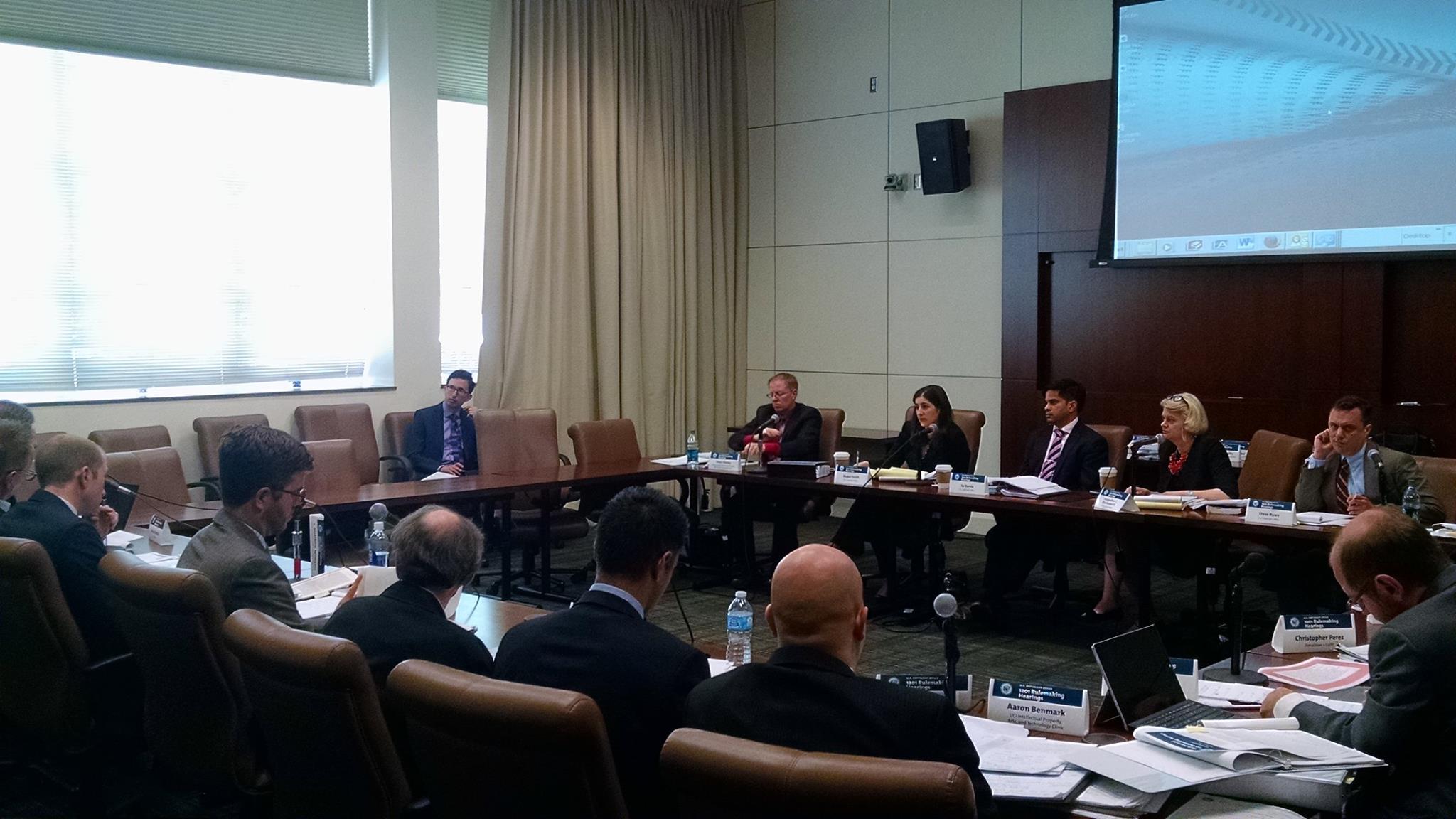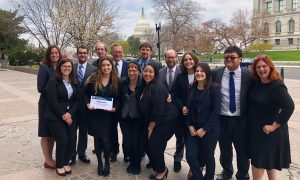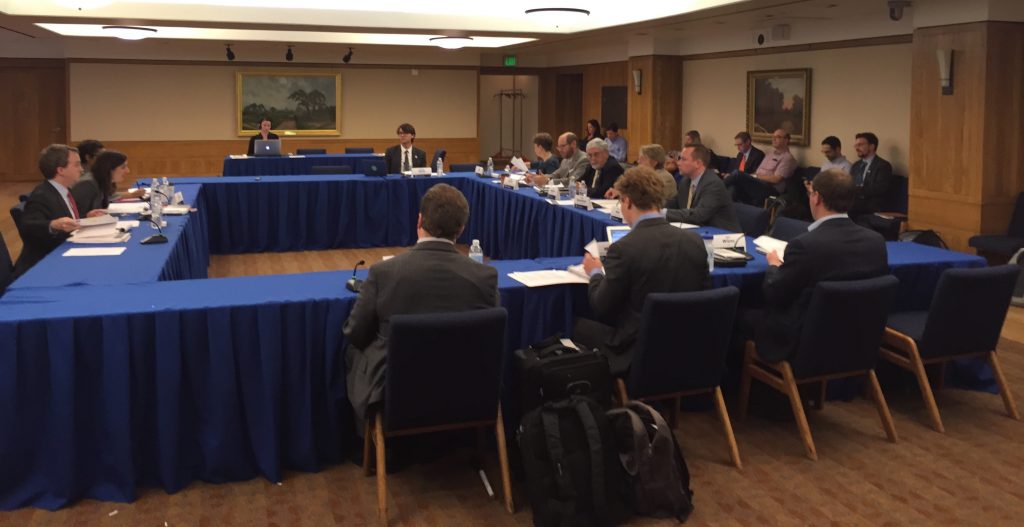
IPAT Clinic faculty, students, and members of Kartemquin Films testifying at DMCA §1201 hearing conducted by the U.S. Copyright Office in May 2015.
Yesterday, the UCI Intellectual Property, Arts, and Technology Clinic submitted an amicus brief on behalf of long-time clients the International Documentary Association and Kartemquin Films in a federal appellate court in Washington, DC in an important copyright case. In Green v. United States Department of Justice, a pair of security researchers are challenging the constitutionality of Section 1201 of the Digital Millennium Copyright Act. Section 1201 makes it illegal to break encryption on digital media, even when that encryption is thwarting important expressive conduct like criticism, commentary, research, and the like—deeply compromising filmmakers’ ability to make fair use.
Our clients depend on fair use to make commentary, criticism, instruction, add context, and report on current events by utilizing portions of digitized movies and other digitized content. But fair use is of little consequence if filmmakers cannot access the high-quality digital material they seek to use in the first place. Today the vast majority of film and video clips covered by fair use are locked behind encryption. Even though breaking encryption is necessary for nearly all filmmakers who wish to make fair use, the DMCA makes that a crime. As we explain in our brief, this raises serious First Amendment concerns for all filmmakers.
This is the second appeal in this case, and the second amicus brief we have filed. (Read about our first brief, and more about this case, here.) The first appeal concerned only how the DMCA specifically affected the plaintiffs. This appeal is a “facial challenge,” which means the security researchers are asking the Court of Appeals to look not just at how the law affects them, but how it affects everyone—including filmmakers. In this brief, we show that by putting up significant barriers to fair use, the DMCA harms the First Amendment rights of filmmakers everywhere.
Since its founding in 2014, the IPAT Clinic has been a leading advocate for independent filmmakers on this issue. Read more blog posts here about our work in this area.
Special thanks are due to IPAT Certified Law Students Cooper King and Paul Pouzet-Poonegar, who worked tirelessly in drafting the brief and in preparing it for filing. Valentina Comar and Richard Yoo also provided valuable assistance.




